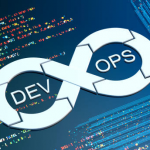google.com, pub-1690574945195838, DIRECT, f08c47fec0942fa0
Skills are needed to be a software engineer in Nigeria. Software engineering is a field that is vital to computer technology as a whole. Without the software to run the computer hardware, that hardware becomes a clump of plastic, silicon, and metal – perhaps useful as an overpriced paperweight.
In the strictest sense, software engineering is an application of engineering principles to the design, development, and implementation of software. Because software engineering is a unique, scientific, and technically-driven field, special training and formal degrees are required.
In general, software engineering is critical to Nigeria’s quest for technological advancement. Aspiring software engineers can enter and thrive in this field by taking the necessary steps and contributing to national growth and innovation.
Skills needed to be a software engineer in Nigeria. Investigation and Self-Evaluation
Personal interest and aptitude in software engineering are assessed.
- Consider your personal interests and whether software engineering fits them.
- Examine problem-solving abilities to see if they can be applied to software development.
- Consider how important it is in software engineering to be able to work with abstract concepts and complex algorithms.
Gathering data and comprehending the Nigerian software engineering industry
- Investigate the history, current state, and future prospects of Nigerian software engineering.
- To gain insight into the Nigerian software engineering community, read industry publications, blogs, and forums.
- Get in touch with software engineers or sign up for relevant online communities to learn about their experiences firsthand.
Determining the necessary skills and qualifications
- Determine the popular programming languages, frameworks, and tools in the Nigerian software industry.
- Investigate the educational and professional qualifications that are commonly required by employers in Nigeria.
- Evaluate your personal qualifications and see if any gaps can be filled with additional education or training.
- Compile a list of skills that are commonly required in software engineering roles in Nigeria.
Skills needed to be a software engineer in Nigeria. Decide on a specialty
Investigating various specializations in software engineering
When deciding to become a software engineer in Nigeria, it is critical to investigate the various specializations available.
This will give you a better understanding of the various career paths available and will assist you in making an informed decision.
Examining current market trends and requirements for software engineering in Nigeria
Analyzing current trends and demands in the Nigerian software engineering market is critical. This research will reveal which specializations are in high demand and provide better job opportunities.
When selecting a specialization, consider your personal interests and strengths.
Personal preferences and advantages should be taken into account when making the choice. A specialization chosen in line with one’s interests and aptitudes will promote career advancement and job satisfaction.
Skills needed to be a software engineer in Nigeria. Making Connections and Networking
Attending conferences, seminars, and events related to software engineering in Nigeria
For aspiring software engineers, attending software engineering events, conferences, and seminars in Nigeria is essential.
These events allow attendees to network with industry professionals, gain insights from experienced individuals, and learn about the most recent trends and technologies.
Aspiring software engineers can broaden their networks and meet potential employers, colleagues, and mentors by attending these events.
Networking at these events can lead to job opportunities, internships, and valuable connections that will help them advance in their careers.
Affiliating with software engineering-related online communities, forums, and social media groups
Joining online communities, forums, and social media groups focused on software engineering is crucial for networking and creating connections in the current digital era.
These online communities offer aspiring software engineers a place to meet others who share their interests.
Aspiring software engineers can interact with experts who are already employed in the industry through these online platforms.
They can ask questions, get answers, and gain knowledge from others’ experiences. Additionally, online communities provide chances for project collaboration, resource sharing, and keeping up with business news.
Developing relationships with professionals and mentors in the field
Making connections with industry professionals and mentors is critical for aspiring software engineers. Based on their own experiences, these people can offer advice, support, and valuable insights. Aspiring software engineers should actively seek opportunities to network with industry professionals and mentors. This can be accomplished through networking events, online platforms, or even by directly contacting individuals they admire and respect.
Building relationships with professionals and mentors can lead to job opportunities, career advice, and valuable industry connections. Mentors can help aspiring software engineers grow and develop in the field by providing advice on career paths, navigating challenges, and providing feedback and suggestions.
Finally, networking and making connections are critical steps in becoming a software engineer.
Choosing wisely and enrolling in an appropriate software engineering program
- Analyze the data gathered during the research and assessment phases.
- Take into account your preferences, professional objectives, and financial limitations.
- Consult experts or mentors in the field for direction and counsel.
- Select the educational program and institution that are best suited to your goals.
- Enroll in the chosen software engineering program after completing the required application process.
Some Technical Skill Required of a software engineer
- Programming language knowledge: The languages that the engineer knows will vary depending on the type of software engineering that they do. However, these are critical to their success.
- Source control: is a tool that allows you to manage and store your code. There are tools available to help you manage your code, such as Git and Github.
- Management and creation of databases: Databases house the information that applications need to provide services to users. A software engineer will be able to create more comprehensive solutions if they have knowledge of how to create and program databases using languages like SQL.
- Operating system management and control: While many Software Engineers will never have to build an operating system, understanding how various operating systems work is beneficial. This knowledge will assist you in designing solutions that use the operating system’s resources without unintentionally introducing vulnerabilities to the application, computer, or network to which it is connected.
- Microsoft Excel: Excel is a helpful tool for keeping track of a project’s progress and for creating reports that describe an application’s successes and difficulties. It frequently plays a crucial part in communicating results to decision-makers and other stakeholders.
- Text editor: Although knowing how to write code may seem more crucial, proficiency with text editors shouldn’t be disregarded. With many text editors, you can use keyboard shortcuts to speed up and improve the accuracy of the entry and editing processes. You can become familiar with a variety of text editors, including Notepad++, Atom, Visual Code, and others.
- Networking basics: In today’s cloud-heavy business environment, networks are critical for facilitating communication between people and systems as well as the deployment of software solutions. Many Software Engineers will need to understand how a client-server model works, which entails a server hosting an application and making it available to multiple computers connected to its network.
Soft skills that a software engineer should possess
Communication Abilities
The Importance of Good Communication for Software Engineers
- Collaboration: Software engineers frequently work in groups, and effective communication facilitates this.
- Interaction with Clients: Good communication skills assist software engineers in understanding client requirements and delivering the desired results.
- Bug Fixing: Effective communication allows software engineers to effectively communicate bugs and issues to their team, resulting in faster resolutions.
- Documentation: Accurate documentation is ensured by strong communication skills, making it easier for other team members to understand and build on the codebase.
Coordination and cooperation
Tools and Techniques for Collaboration in Effective Teamwork
- Platforms for communication: Tools such as Slack and Microsoft Teams enable real-time communication among team members. They provide instant collaboration and problem-solving features such as chat, audio calls, and video conferencing.
- Project Management Software: Platforms such as Jira and Trello help with task organization, tracking progress, and managing deadlines. Within software engineering projects, they promote transparency, accountability, and effective teamwork.
- Version Control Systems: Version control systems such as Git facilitate collaboration. It enables multiple team members to work on a project at the same time, seamlessly merging their changes. This ensures effective code collaboration, version control, and project integration success.
- Shared Code Repositories: Platforms such as GitHub and Bitbucket provide a centralized location for code sharing, reviewing, and collaboration. They allow team members to contribute, comment, and make suggestions, fostering teamwork.
Critical Thinking and Problem-Solving
Practical Techniques for Improving Problem Solving and Critical Thinking
- Learn Constantly: Nigerian software engineers should never stop learning. Participate in continuing education and industry-related courses to improve problem-solving and critical thinking skills.
- Seek Diverse Points of View: Actively seek input from diverse team members in order to gather different perspectives and foster innovation while solving complex problems.
- Accept Challenges: Approach challenges with a positive attitude and see them as opportunities for growth. Accepting challenges promotes the development of problem-solving and critical-thinking abilities.
- Case Studies: Examine real-life case studies to learn how others solved complex problems. This exercise improves critical thinking and problem-solving skills.
- Collaborate and communicate: Effective collaboration and communication with teammates aid in gathering diverse perspectives and comprehensively understanding the problem.
- Practice Visualization: To simplify and methodically analyze complex issues, use visual tools like mind maps, flowcharts, or diagrams.
- Reflect and Iterate: After a problem has been solved, reflect on the steps taken and the results. Problem-solving abilities are improved by constant reflection and revision.
- Keep Up with Technology: Stay informed about the most recent developments in technology and market trends. This knowledge aids in analyzing issues critically and identifying original solutions.
Adaptability and Flexibility
Acquiring flexibility skills
- Learning new technologies on a constant basis: Software engineers should keep up with the most recent developments.
- Attending seminars and training sessions: This aids in their acquisition of new abilities and information.
- Accepting continuous improvement: Software engineers should look for ways to continually enhance their abilities and output.
- Working on a variety of projects: exposes them to various technologies and difficulties.
- Developing an open mindset: In today’s software development industry, it is essential to be open to change and new ideas.
Organizing and Managing time
Techniques and Tools for Task Prioritization and Deadline Management
- Priority should be given to urgent and important tasks.
- Tasks that are important but not urgent should be scheduled for completion later.
- Tasks that are urgent but not critical can be delegated or automated.
- Tasks that are neither urgent nor important can be dropped or deferred.
Intelligence in Emotions
The advantages of emotional intelligence in teamwork, client interactions, and problem-solving
- Problem-solving: Emotional intelligence assists software engineers in approaching problems with a calm and clear head, which results in more practical and effective solutions.
- Teamwork: Software engineers with emotional intelligence are better able to comprehend and value different points of view, work effectively with others, and settle disputes in a positive way.
- Customer interactions: Emotional intelligence enables software engineers to relate to customers on a more personal level, comprehend their needs, and offer customized solutions, ultimately leading to stronger client relationships.


